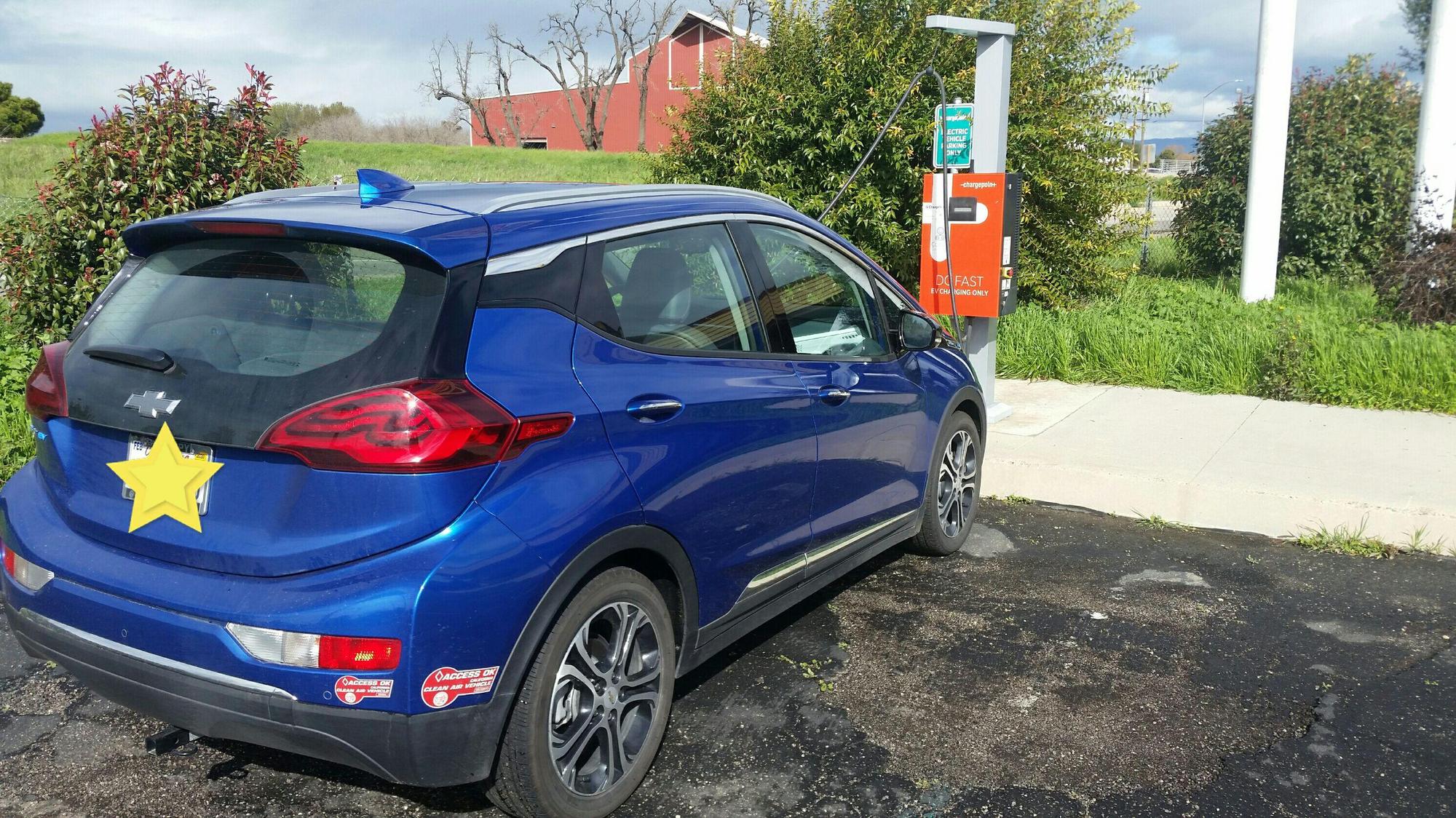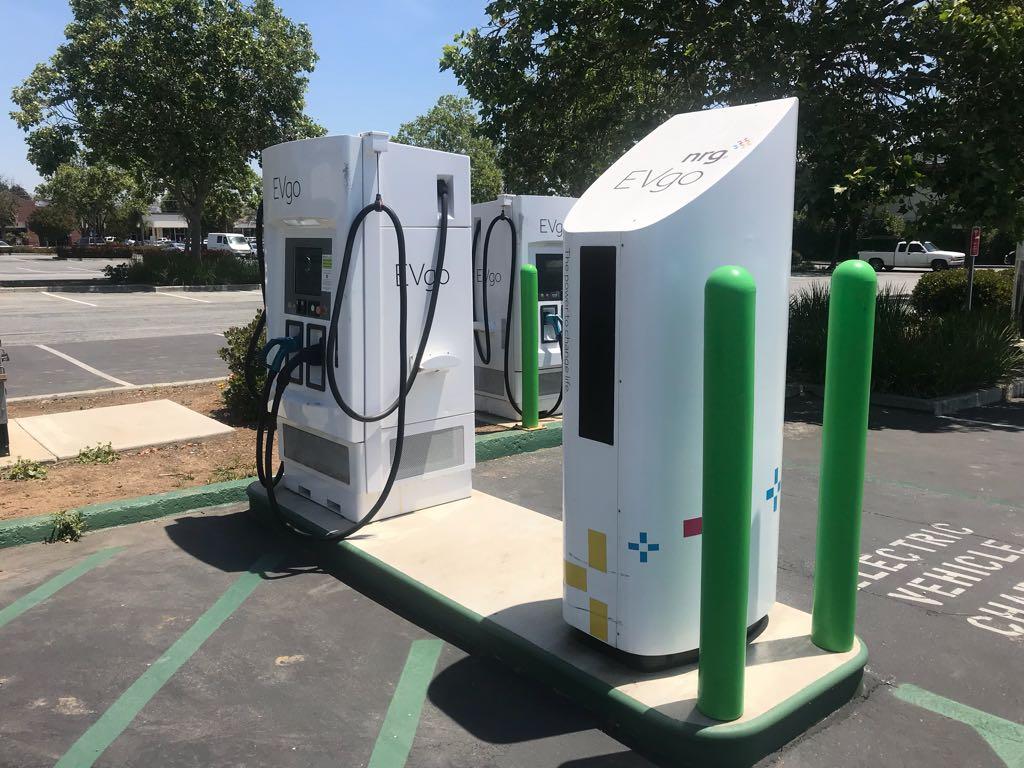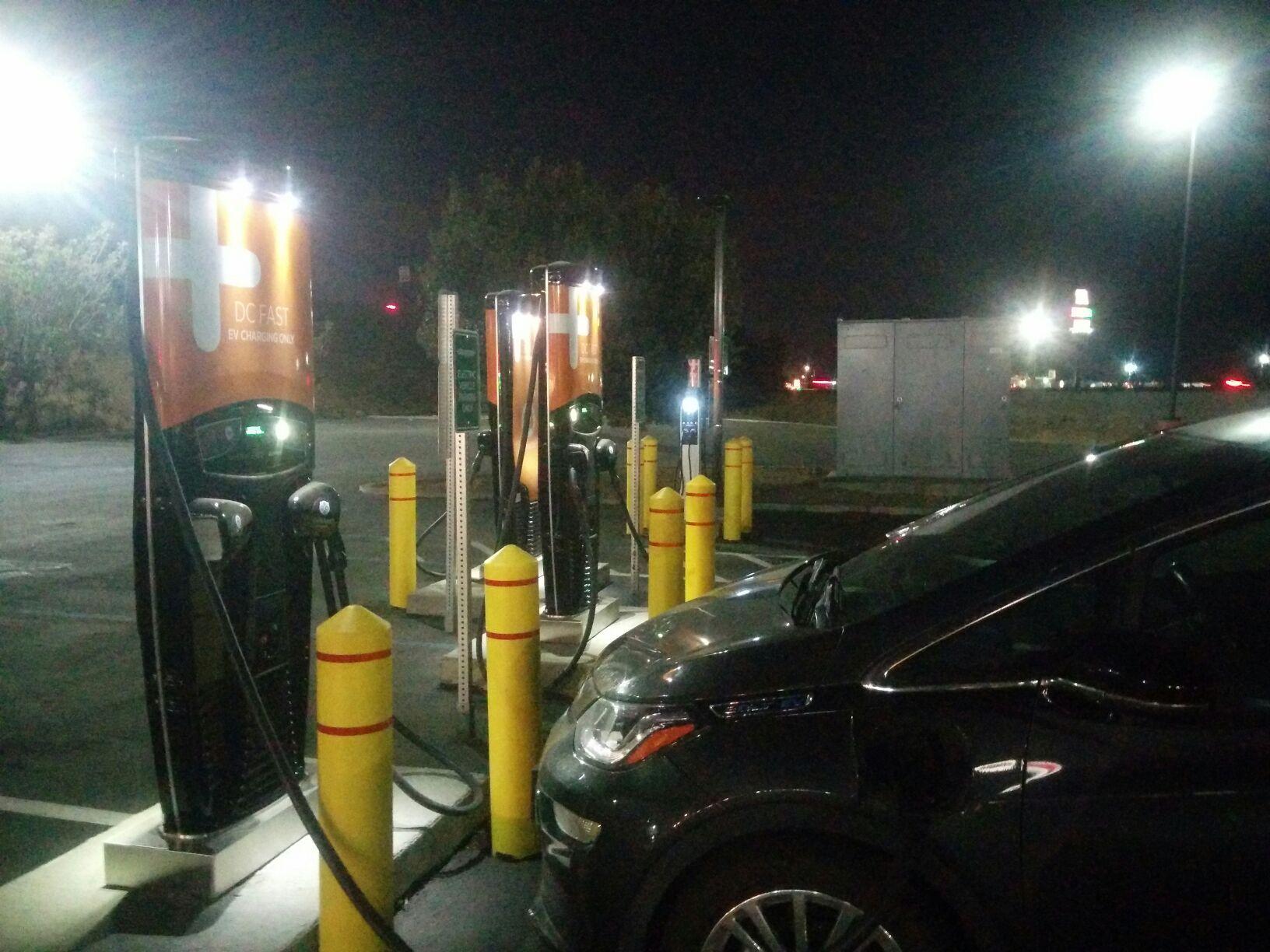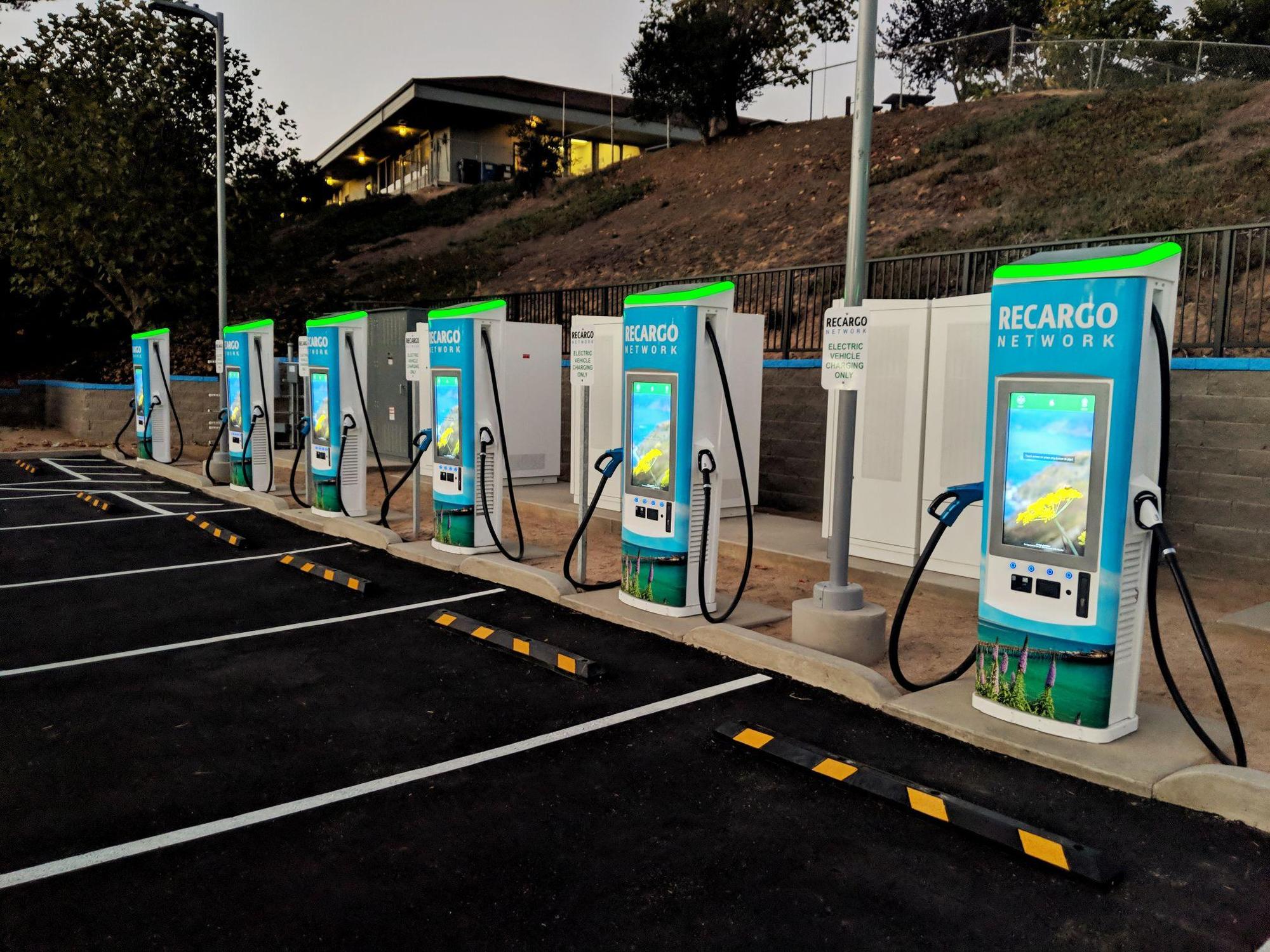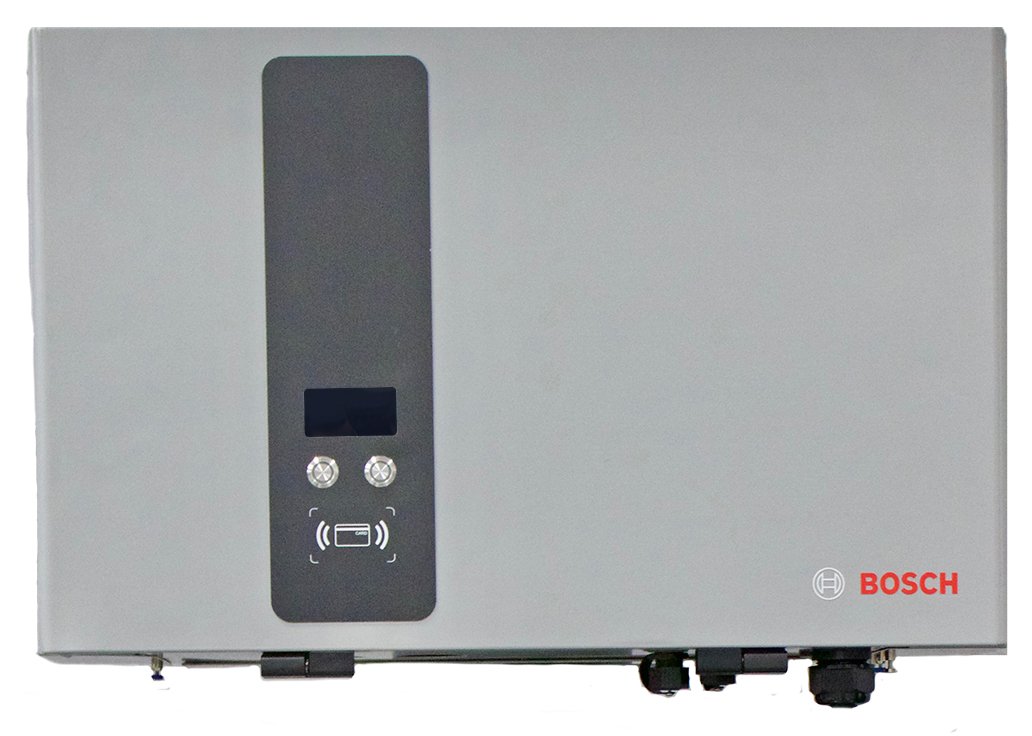What are the typical rates of DC quick chargers? Seems like I've seen numbers as high as (at least) 55 KW. My Clipper Creek gives me 7.7 KW, so that's kind of my baseline.
I charged at a Chevy dealer today, just to see how they operate, and sat in the car, listening to the radio while charging. With the climate control 'off', the rate was showing 20 KW. It added about 60 miles of range in an hour; I had the CC 'on' for about half the time, which dropped the rate to about 17 KW. Not complaining, as the charger is free, and I was only about 7 miles from home.
Not sure why, but the dealer's Bolt was plugged in when I arrived, but it wasn't charging. I unplugged it, then replugged it when I was leaving. Perhaps they were just showing off how easy it is to charge the car..???
I charged at a Chevy dealer today, just to see how they operate, and sat in the car, listening to the radio while charging. With the climate control 'off', the rate was showing 20 KW. It added about 60 miles of range in an hour; I had the CC 'on' for about half the time, which dropped the rate to about 17 KW. Not complaining, as the charger is free, and I was only about 7 miles from home.
Not sure why, but the dealer's Bolt was plugged in when I arrived, but it wasn't charging. I unplugged it, then replugged it when I was leaving. Perhaps they were just showing off how easy it is to charge the car..???




